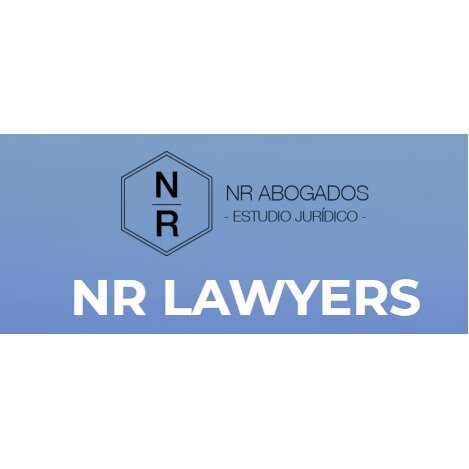Best Corporate & Commercial Lawyers in Argentina
Share your needs with us, get contacted by law firms.
Free. Takes 2 min.
Or refine your search by selecting a city:
List of the best lawyers in Argentina
About Corporate & Commercial Law in Argentina
Corporate & Commercial law in Argentina governs all legal aspects related to companies, business transactions, and commercial operations within the country. This field of law covers the formation, operation, regulation, mergers, acquisitions, liquidations, contracts, and disputes involving private and public companies, partnerships, and other business entities. The legal framework is primarily established by the Civil and Commercial Code, complemented by specific laws and regulations aimed at ensuring fair and transparent business practices. Argentina's legal system is based on civil law traditions, making its structure and approach distinct from common law countries.
Why You May Need a Lawyer
There are several common situations in which individuals and businesses may require legal assistance with Corporate & Commercial matters in Argentina. Here are a few scenarios:
- Forming or incorporating a company, partnership, or joint venture
- Drafting, negotiating, or reviewing commercial contracts and agreements
- Complying with complex local regulations and filing requirements
- Buying, selling, or merging companies or assets
- Resolving shareholder disputes or issues with company governance
- Protecting intellectual property and trade secrets
- Navigating employment and labor issues for businesses
- Managing foreign investment and cross-border transactions
- Handling insolvency, restructuring, or liquidation
- Addressing tax, anti-money laundering, and compliance matters
Working with a corporate & commercial lawyer can help prevent costly mistakes, protect your rights, and ensure that your business activities are legally sound.
Local Laws Overview
Understanding the main aspects of local laws is crucial for those engaging in Corporate & Commercial activities in Argentina. Key points include:
- The Civil and Commercial Code governs the majority of business activities, including the formation and operation of companies
- Common company forms are the Sociedad Anónima (SA) and Sociedad de Responsabilidad Limitada (SRL). Each has distinct requirements about capital, governance, shareholder liability, and reporting
- The Argentine Securities Commission (CNV) regulates publicly traded companies
- Foreign investors may face certain restrictions and additional requirements, especially in sensitive sectors
- Commercial contracts can be freely negotiated, but some content is mandated by law for transparency and fairness
- Anti-corruption and anti-money laundering laws are strictly enforced
- Labor laws are protective of employees and must be carefully considered when hiring or restructuring
- Intellectual property rights are protected by national laws aligned with international treaties
- Dispute resolution can occur through local courts or arbitration, which is increasingly popular in commercial contracts
- Taxation is governed by federal and provincial regulations, with the Federal Administration of Public Revenue (AFIP) as the principal authority
Frequently Asked Questions
What are the most common types of business entities in Argentina?
The main business structures are the Sociedad Anónima (SA) - similar to a corporation - and the Sociedad de Responsabilidad Limitada (SRL), which is equivalent to a limited liability company. Other forms include branches of foreign companies and simplified companies (SAS).
How long does it take to incorporate a company in Argentina?
The timeframe varies depending on the business type and jurisdiction, but typically takes from two to six weeks, provided the required documentation is complete and in order.
Can foreign nationals own or start a business in Argentina?
Yes, foreign individuals and companies can set up businesses in Argentina, although specific industries may have extra requirements or restrictions. Some processes may require local legal representatives or addresses.
What are the key obligations for companies after incorporation?
Ongoing obligations include filing annual financial statements, paying local and national taxes, maintaining proper accounting records, holding annual shareholder meetings, and complying with labor and social security regulations.
Are commercial contracts legally binding in Argentina?
Yes, contracts freely entered into by the parties are generally legally binding, provided they do not violate mandatory legal provisions, public order, or good customs.
How are commercial disputes resolved?
Disputes can be resolved through litigation in ordinary courts or through alternative dispute resolution methods like arbitration. Many commercial agreements now include arbitration clauses for efficiency and confidentiality.
What taxes do companies have to pay?
Businesses typically pay corporate income tax, value-added tax (VAT), social security contributions, and provincial or municipal taxes. Tax obligations can vary based on business activity and location.
Are there residency requirements for company directors?
For certain company types, at least one board member or manager must be a resident in Argentina. Additional requirements may apply to companies with significant foreign ownership.
How are shareholders’ rights protected?
The Civil and Commercial Code and specific company laws provide mechanisms to protect minority shareholders and ensure transparency, including access to information and remedies for abuses.
What is the role of the Argentine Securities Commission (CNV)?
The CNV oversees companies whose securities are publicly traded, ensuring compliance with disclosure, governance, and market rules to promote transparency and protect investors.
Additional Resources
Those seeking further information or legal assistance in Corporate & Commercial matters in Argentina can consider these resources:
- Argentine Commercial Registry (Registro Público de Comercio): Handles business registrations and filings
- Argentine Securities Commission (Comisión Nacional de Valores - CNV): Oversees the capital markets and public companies
- Federal Administration of Public Revenue (Administración Federal de Ingresos Públicos - AFIP): Manages taxes and fiscal compliance
- Argentine Chamber of Commerce (Cámara Argentina de Comercio): Offers support and information for businesses
- Professional organizations such as the Argentine Bar Association (Colegio de Abogados)
- Local arbitration centers and business associations
Next Steps
If you need legal assistance in Corporate & Commercial matters in Argentina, consider these steps:
- Define your needs (company formation, contracts, transactions, disputes, etc.)
- Gather relevant documents and information
- Contact a qualified lawyer or law firm experienced in Argentine corporate & commercial law
- Request an initial consultation to explain your situation and receive tailored advice
- Discuss strategies, costs, and timelines before formally engaging the lawyer
- Maintain clear communication and keep records of all correspondence and agreements
Engaging local legal counsel can help you navigate the complexities of Argentine laws, avoid pitfalls, and ensure that your business operations or interests are protected.
Lawzana helps you find the best lawyers and law firms in Argentina through a curated and pre-screened list of qualified legal professionals. Our platform offers rankings and detailed profiles of attorneys and law firms, allowing you to compare based on practice areas, including Corporate & Commercial, experience, and client feedback.
Each profile includes a description of the firm's areas of practice, client reviews, team members and partners, year of establishment, spoken languages, office locations, contact information, social media presence, and any published articles or resources. Most firms on our platform speak English and are experienced in both local and international legal matters.
Get a quote from top-rated law firms in Argentina — quickly, securely, and without unnecessary hassle.
Disclaimer:
The information provided on this page is for general informational purposes only and does not constitute legal advice. While we strive to ensure the accuracy and relevance of the content, legal information may change over time, and interpretations of the law can vary. You should always consult with a qualified legal professional for advice specific to your situation.
We disclaim all liability for actions taken or not taken based on the content of this page. If you believe any information is incorrect or outdated, please contact us, and we will review and update it where appropriate.
Browse corporate & commercial law firms by service in Argentina
Argentina Attorneys in related practice areas.
Browse corporate & commercial law firms by city in Argentina
Refine your search by selecting a city.
















